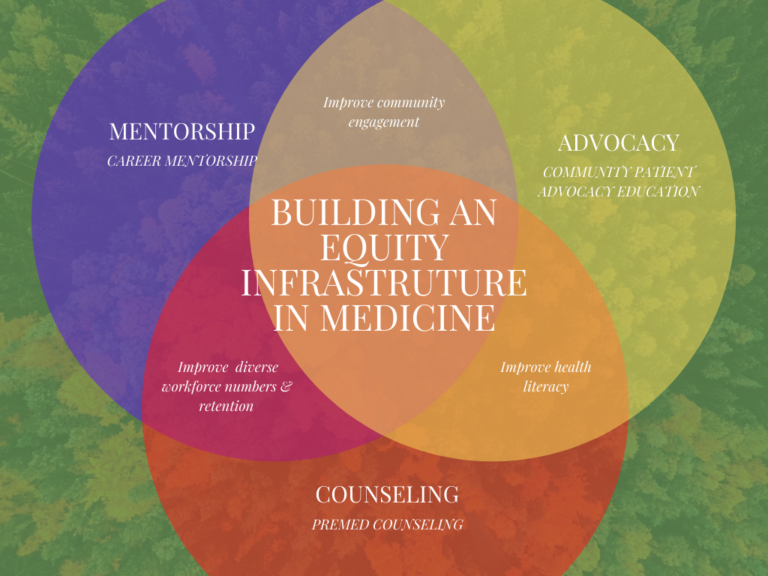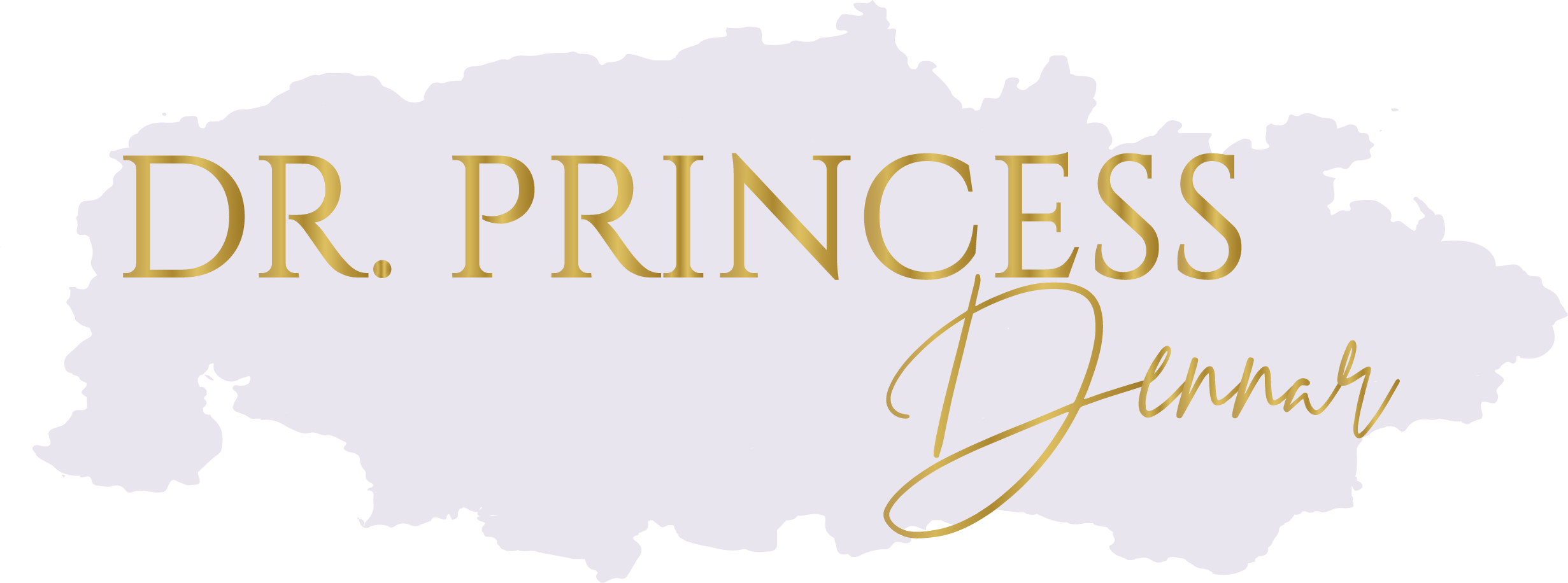
Building An Equity Infrastructure in Medicine
Just like a community’s infrastructure is the physical and organizational structures needed for a society to be operational, the infrastructure for an equitable medical community requires building fundamental medical and health opportunities, resources, and education for the people who live within that community. Hence, part of the infrastructure needed to achieve equity in care for BIPOC communities requires thought leadership that centers the care of patients through clinical restorative justice efforts and community advocacy that strengthens a diverse workforce through mentorship, advocacy, and counseling.
Thought Leadership
As an expert thought leader in medical racism in academia, anti-racism clinical restorative justice efforts, and equity in medicine. Dr. Dennar is one of the co-founders for the Coalition to Advance Anti-racism in Medicine (CAAM)— a collective founded by Black women physicians and leaders committed to creating an inclusive, equitable, and just healthcare system and eliminating structural racism in medical education, clinical practice, and research. Dr. Dennar is also the founder of Dennar Medical Erudition, LLC, an organization whose mission is to change systems and support community-based solutions positively. Dr. Dennar can speak at your event, conferences, or virtual summits.
Community Advocacy
It comes as no surprise that Dr. Dennar believes that the necessary stakeholders at the equity of medicine table should be the focal points for developing a solid medical equity infrastructure. Therefore, Dr. Dennar has been instrumental in building patient advocacy networks for the community. She works tirelessly to fortify the presence and retention of URM in medical institutions by providing pre-med counseling and residency, fellowship, and early career faculty mentorship.
Equity in medicine demands that the pipeline to physicians is diverse and fracture resistant. The systemic solution per institution is likely to be different but has common themes. Undoubtedly, these are best articulated by those who have functioned as gatekeepers and wield the equity intelligence to propagate quality and diversity. Dr. Dennar’s experience in both the medical school and residency admissions processes situates her in a reality-tested context that can accentuate the success of any undergraduate pre-med program. Further, her mentorship to undergraduates allows her dual capacity to augment the individual’s solution to the pursuit of equity in medicine.
BIPOC physicians-in-training begin their residency with a downpour accelerated life experience, demands of a medical doctor, and the inequities in medical training, resources, support that is immense and novel than they could have predicted. Unfortunately, these stumbling blocks accelerate the attrition of persons who start residency but do not finish successfully. Even worse, the loss of our physicians is sometimes permanent to the profession, their families, and the world. Gratefully, Dr. Dennar’s experience for over a decade as a Residency Program Directorship helps her incorporate tools needed to mentor many BIPOC residents to flourishing stages in their professional careers, making her an invaluable ally in the development of one’s chosen career.
Healthy People 2030 defines personal health literacy as the degree to which individuals can find, understand, and use information and services to inform health-related decisions and actions for themselves and others. The role of community advocacy networks is essential to reducing disparities in medicine. Consequently, Dr. Dennar uses her clinical and teaching experience in higher education to teach community health workers to become patient advocates and social entrepreneurs for justice.
